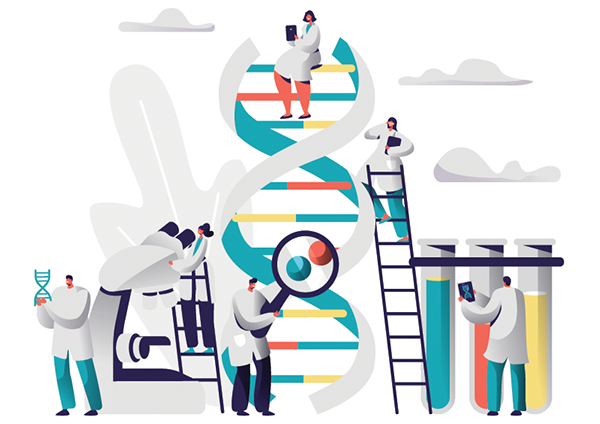Three research volunteers given first ever national award for their essential role in combatting the greatest public health crisis for our society in this century
Washington, DC (October 23, 2019) – Today, the Global Alzheimer’s Platform Foundation® (GAP) honors three Citizen Scientists® in recognition of the indispensable role clinical trial volunteers play in the fight against Alzheimer’s disease. Alzheimer’s is a national public health crisis, with more than 5.8 million Americans living with the disease, a number expected to grow to 14 million by 2050 if no effective treatments or cures are found.
In its effort to speed the development of treatments and cures for Alzheimer’s disease, GAP partners with more than 70 Alzheimer’s research centers across North America (GAP-Net) to accelerate recruitment of clinical trial participants. Recruitment is the biggest barrier to successful clinical trials; 90 percent of Alzheimer’s studies are delayed due to insufficient recruitment, making research volunteers a key piece of the puzzle.
“GAP created the National Citizen Scientist Awards® to honor clinical trial participants and inspire more people to volunteer. There’s a lot of debate over what scientific approaches to Alzheimer’s hold the most promise, but researchers around the world agree on one thing: we need to recruit more research volunteers,” said GAP President John Dwyer. “The first person cured of Alzheimer’s will be someone in a clinical trial, but our movement hasn’t done enough to engage potential trial participants, especially people from minority communities.”
The National Citizen Scientist Award honorees were selected from more than 100 nominations received from GAP-Net sites and are being presented with their awards at the Trish Vradenburg Dinner, a national event held in Washington, DC on October 23, 2019, during the National Alzheimer’s Summit. The honorees represent a wide range of backgrounds and have diverse motivations for getting involved in research:
Rochelle Long is an advocate for more African Americans being involved in research. African Americans account for 20% of Alzheimer’s patients in the U.S. yet represent well under 10% of research volunteers. “Drugs that work for white men may not work as well for black women,” Rochelle says. “More of us in the African American community need to be involved in research to determine the reasons for that.” Rochelle’s involvement with Alzheimer’s clinical trials spans 17 years at the Brain Health and Memory Center in the Neurological Institute at University Hospitals Cleveland Medical Center. She has been a volunteer or study partner in seven trials and is a member of the University Hospitals Minority Outreach Board, encouraging African Americans to get involved. GAP is honoring Rochelle with the Citizen Scientist Cornerstone Award.
Richard Apple was the primary caregiver for his uncle and his mother, both of whom died from Alzheimer’s, an experience that inspired him to join research at Great Lakes Clinical Trialsin Chicago, IL. “Caring for my family members taught me how little the health system knows about caring for individuals with dementia,” Apple says. “If I happen to be in a study that’s successful, I’ll be in on the ground floor of the treatment. It would be very positive to postpone or avoid what I went through with my family.” Richard knows that as someone with a family history of Alzheimer’s, he is at greater risk for the disease. Participating in clinical trials not only give him the opportunity to receive regular memory screens for assessment, but also ensures there is a team paying close attention to his cognitive health. He is the inaugural Citizen Scientist Champion Award honoree.
Barbara (Barb) Silva embodies the importance of community brain health advocacy. “I love teaching sequential thinking,” the Citizen Scientist Catalyst Award honoree says. “It’s done wonders for my health.” Barb hopes that more people will consider brain health an important part of their overall health, since Alzheimer’s can begin in the brain up to 20 years before symptoms arise. Even after she received an Alzheimer’s diagnosis from Dr. Brian Ott at Rhode Island Hospitalin Providence, RI, she continued to teach her aerobics class and participate in the Mega-Memory Class that she co-founded in 1997 with her business and research study partner Elaine Sewatsky.
Beyond giving national recognition to the Citizen Scientists who make their trials possible, GAP has partnered with each of the three honorees’ research centers to accelerate innovative approaches to the Alzheimer’s public health challenge:
UH Cleveland Medical Center received support from GAP earlier this year to advance its effort to recruit and provide neurology services for African Americans, who are twice as likely to have Alzheimer’s but are underrepresented in research. The money is going towards the launch of a new neurology clinic at the Otis Moss, Jr. Health Center in one of Cleveland’s most heavily populated African American—and underserved—neighborhoods. The clinic will open early next year.
Rhode Island Hospital worked closely with GAP and Rhode Island Lieutenant Governor Daniel McKee to implement the Alzheimer’s State Plan, a bold set of recommendations aimed at improving support and services for Rhode Islanders affected by Alzheimer’s and other dementias. The Lieutenant Governor honored Barb and other research volunteers at a ceremony at the Rhode Island State House in June. GAP also provided support to aid recruitment in clinical trials.
Great Lakes Clinical Trials has made GAP’s Acti-v8 Your Brain program an essential component of its patient education. Acti-v8 Your Brain is centered around eight pillars of brain health—including exercise, maintaining social connections, and eating a healthy diet—which can stave off cognitive decline and reduce the risk of dementia. Until a cure is found, lifestyle interventions are the best approach to reduce the effect of Alzheimer’s disease on public health as a whole.
The National Citizen Scientist Awards are supported by Janssen Research & Development, LLC and the Vradenburg Foundation.
To learn more about the National Citizen Scientist program and awards, please visit globalalzplatform.org/awards.
